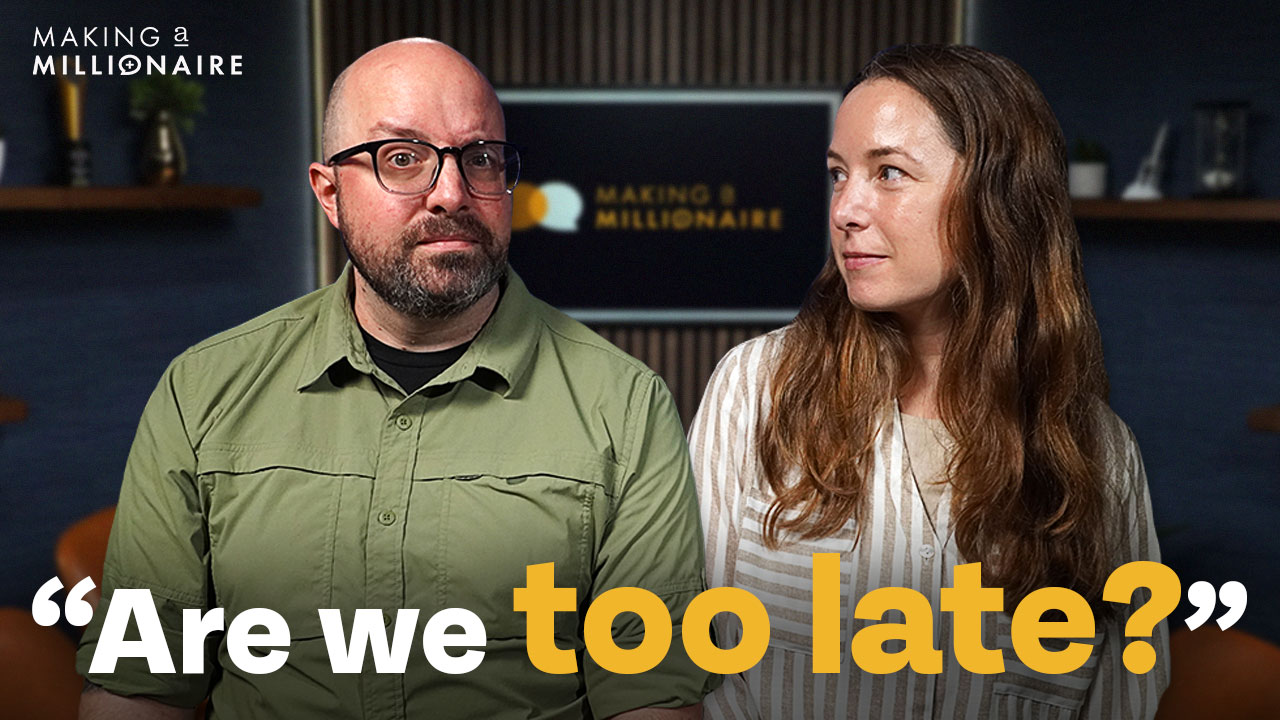Let's move on to Jordan's question. What is the best way to build up cash reserves from three to six months to one to two years so that I can move into retirement? Do I cut my investments and pile into cash, or build it up over the last few years while still investing?
Yeah, so what Jordan's hitting on is, you know, normally we say when it comes to the emergency fund, we want you to have three to six months of your living expenses in cash on hand. So, you've got to determine first, okay, what are my living expenses? Do I fall in the three-month category? Do I fall in the six-month category? And you have that. But when you get to financial independence, when you get to the point where it's time to start living off of these dollars, a little day three to six months is enough. We want you to have 12 to 18, maybe even 24 months of liquid living expenses readily available to you so that no matter what the market throws at you, so no matter what volatility you see, your portfolio can sustain that because you know you have liquidity captured.
So, I think Jordan's question, Brian, is, well, okay, do I rebalance my portfolio and sell some stuff, or do I decrease my savings and just stack up cash, or is it a combination of both, or is there not a right or wrong answer? It kind of depends on preference.
So, look, we all know the
financial order of operations. This is probably a step eight or nine type issue because what is eight is prepaid future expenses in retirement. I will tell you, as you're quickly approaching retirement, that is something you want to be planning for and thinking about. But there's also a bigger abundance cycle type question here, which is that as you approach retirement, realize your asset allocation and, despite what they tell you in Bogle and all the other forms you might be going to, where they tell you total Market till the day you die, that there might be some issues as that, and that's what Jordan's hitting on is that your asset allocation, as you think about the glide path of your, your wide open on risk when you're young, but as you're quickly approaching retirement, it's not about maximizing a run of the score. Some of it is also the risk capacity side of things is mitigating how much volatility you're going to experience in retirement.
So, Jordan, this also ties into an addition to being a step 8-9 kind of
financial order of operations. It's a change in your overall asset allocation, and that's part of the transition that you're probably on. It is you can build this into the rebalance. It's not a matter of cutting off your investments. It's a matter of making sure that your asset allocation reflects your goals. Now, if you're a person that's been running wide open at a hundred percent risk on type assets, like a total market fund or something, but you're three years from retirement, then yeah, it's going to feel like, 'Man, I've made a dramatic change in my portfolio.' But in reality, a lot of times, it's supposed to be a glide path where you transition on landing that airplane of retirement. And you're changing your asset allocation.
I think these things are really part of, once again, back to the statement of no matter how simple you try to create your financial life, the complexity of the decisions and the questions you will have as you're trying to figure out how do I approach retirement, how do I create cash, how do I change asset allocation, you're going to get overwhelmed. And this is the part I always remind people: you've only had one retirement. Your financial advising team that we have at Abound Wealth, we've worked with hundreds, if not thousands, of folks. Don't do this to yourself once and make a big dramatic material mistake that could cause you a lot of sleepless nights and a lot of regret. This is something where you might want to take the relationship to the next level. You know, if you go to
moneyguy.com or
aboundwealth.com, we have a 'Work with Us' section. Go check it out, fulfill that next level of the abundance cycle.













